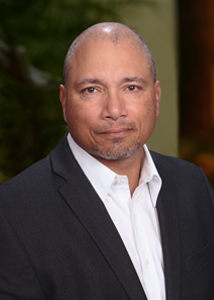Individualization of care, above other factors, can improve mental health and substance use disorder treatment outcomes. Advances in medications, psychotherapy, and telehealth are helping to reduce relapse, enhance the quality of life, and maintain recovery. However, it is often the ability of provider organizations to tailor programming to the needs of patient cohorts that can have the most significant effect on long-term, holistic treatment success. Utilizing specialized caregivers, therapies, and milieus allow providers to significantly increase the relevance, resonance, and efficacy of the treatment experience and aftercare for patients who identify strongly with professions or cultural subsets. Behavioral healthcare programs specialize in age groups, gender identities, licensed professionals, religious faiths, military members, first responders, and more. There are also programs that cater to the unique needs and ideology of athletes.
Despite their extraordinary physical and mental abilities, athletes are prone to complex biopsychosocial factors that can contribute to mental health and substance use disorders. The demands of athletic pursuits also pose risks to health and wellbeing, including physical injury, chronic pain, performance pressure, anxiety, disordered eating, overexercise, and more. It is not uncommon for athletes to endure bouts of severe depression after being sidelined by injury, suffering a loss, or entering retirement. Athletes who derive most of their identities from their athletic pursuits may experience a loss of purpose and meaning when they perform suboptimally or can no longer compete. When mental health problems arise, the fact that athletes are trained to persevere through adversity reduces the likelihood that they will recognize the severity of the problem and seek care. Athletes conditioned to believe that their thoughts are their most formidable competitors can perceive substance use and mental health conditions as hurdles that can be cleared with enough patience and persistence. This thinking can lead to a dangerous cycle of self-blaming and prolonged suffering. Financial success and notoriety can create challenges for some athletes, including financial enabling of substance use disorders, exposure to unhealthy relationships and stressors, reduced personal privacy, problematic family expectations, and more.
One of the most important aspects of programs that treat athletes is their ability to recognize how the double-edged sword of the athletic mindset and lifestyle can help or hinder recovery. Experienced clinicians can determine if athletes harbor negative self-perceptions, unrealistic expectations, or other problematic thinking associated with pursuing athletic goals or leading life in the spotlight. They can also help athletes channel their highly developed sense of motivation and focus to assist in the treatment and recovery process. The ability to establish a strong therapeutic alliance is another essential factor in successful treatment. When people believe that their caregiver understands their problems, wants to help them, and is qualified to help, they are more likely to benefit from treatment. Caregivers who can view the world through an athlete’s lens have a much greater chance of developing an authentic and productive bond with their patients.

Seeing through the veneer is key to identifying the underlying issues that we need to address through holistic treatment.
Derek Anderson, Psy.D., Executive Director
“Athletes have a unique view of the world that allows them to do what most of us cannot. But this outlook can also make it hard for them to truly relate to non-athletes,” says Dr. Derrick Anderson, Psy.D., executive director of the Orenda Athletes Track. Anderson and his team find that backgrounds working with professional athletes and major-league teams help them relate with their patients. “Athletes can possess the belief that they can overcome any mental challenge. This attitude helps them perform in sport, but it is hard to turn off in everyday life. It can prevent them from accepting the idea that they need the help of other people to conquer a problem created by their own mind. They can seem obstinate or defiant to others, especially when they feel vulnerable or challenged, like in treatment. Because the Orenda team is accustomed to working with athletes and has complete fluency in the athletic ethos, we can quickly help patients feel comfortable and get beneath the surface. When patients see that we truly understand their perspectives, challenges, and experiences, they feel heard, open, and trusting. Seeing through the veneer is key to identifying the underlying issues that we need to address through holistic treatment.”
The Orenda Athlete Track is tailored to the needs of athletes and designed for effectiveness and comfort. To increase the consistency of treatment, each patient is assigned a dedicated therapist that provides personalized care throughout their treatment stay. Training is also integrated into treatment. Flexible treatment schedules work around training sessions. Treatment team members communicate with coaches and trainers to get an athlete’s training and fitness routines, and physical trainers, coaches, and fitness training are used to ensure optimal and safe training. Physical therapy may be offered to identify or address sources of underlying pain. Dieticians and nutritionists may be consulted, and nutritionally-appropriate meals provided. Helping patients continue to train while receiving holistic treatment is about more than making treatment comfortable and maintaining the patient’s normal life rhythm. Watching patients train allows care team members to glean important insights into the athlete’s mentality and physicality. Using the experiences of treatment as topics of individual and family therapy sessions increases the relevance of care.
Orenda also helps to protect an athlete’s ability to return to their careers and provides necessary professional communication and support services. The Orenda team is aware of therapeutic or recreational activities that would conflict with an athlete’s contracts. At the discretion of patients, treatment team members can communicate with league doctors, management, or legal professionals to ensure compliance with mandated treatment. Aftercare planning is provided to connect athletes with treatment providers and other resources in their home communities that will provide ongoing treatment and services.
To learn more about the Orenda Athletes Track, contact a member of our admissions team at 866.327.3183.

